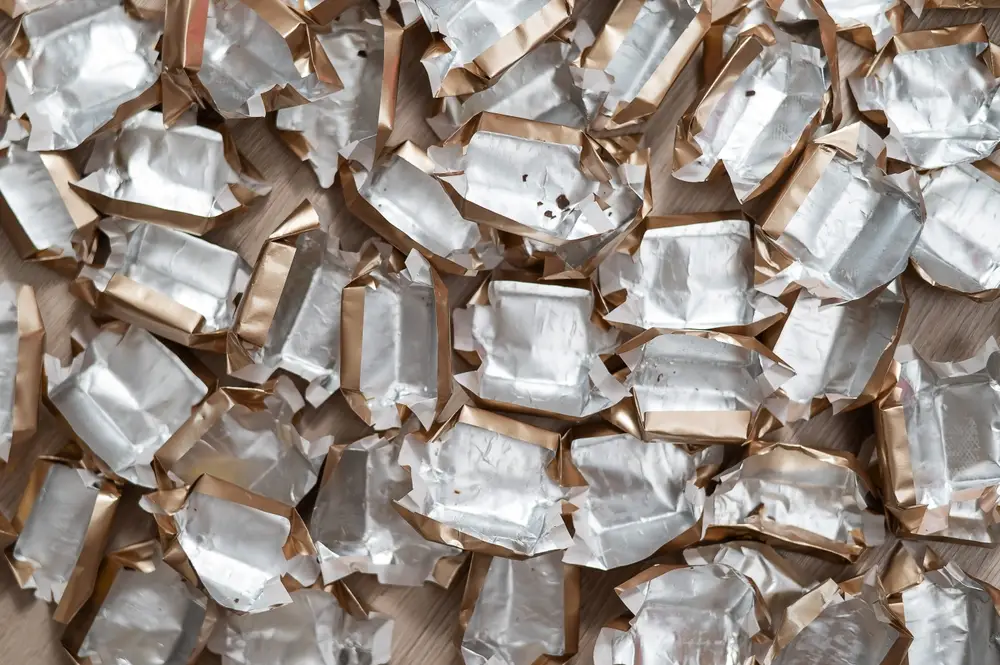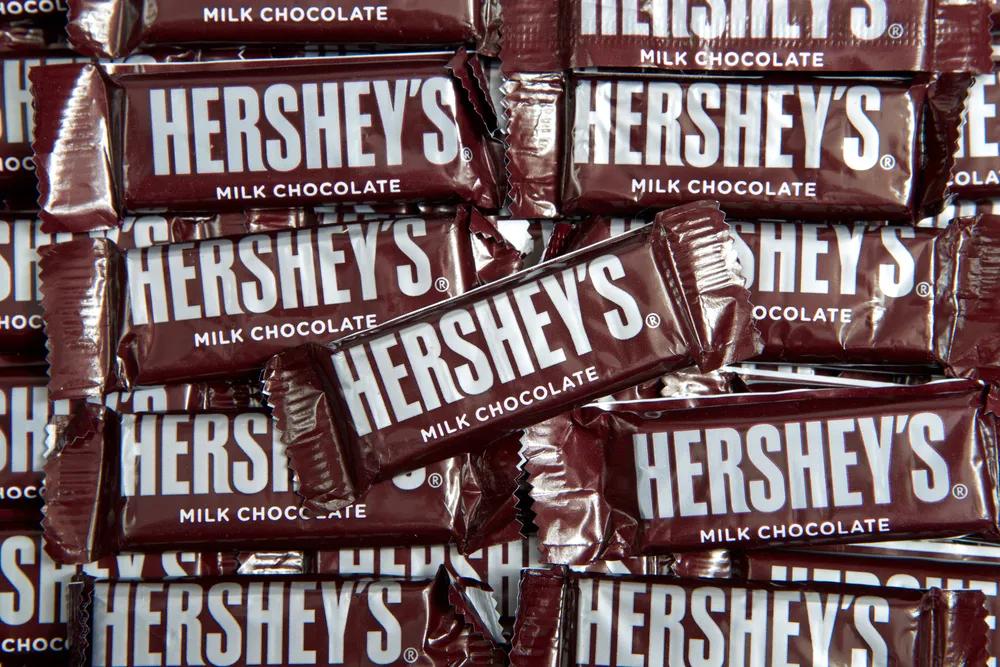Customers who reach for Hershey’s chocolate might be consuming cancer-causing chemicals along with their sweet treat, a recent lawsuit alleges. Independent laboratory test results released by Grizzly Research revealed shocking findings: some Hershey’s chocolate wrappers contain alarming levels of toxic per- and polyfluoroalkyl substances (PFAS). This disturbing development prompted former Hershey’s customer Bernadette Beekman to file a class action lawsuit on behalf of affected consumers nationwide—and she’s not the only one speaking out.
What Are PFAS—And Why Are They In Hershey’s Wrappers?
PFAS refers to thousands of different synthetic chemicals, including the well-known Teflon. Also known as “forever chemicals,” they can persist in the environment for hundreds or even thousands of years. The hazardous substances have a tendency to accumulate in the human body, where they can wreak havoc and lead to serious health issues like cancer, thyroid disease, asthma, ulcerative colitis, and fertility problems.
So what are these toxic chemicals doing in Hershey’s wrappers? In association with food manufacturing, PFAS are typically used to make surfaces water- or grease-resistant—making their presence in Hershey’s wrappers, which don’t need to possess these characteristics, puzzling. Beekman’s lawsuit states that PFAS “serves no direct purpose” in Hershey’s packaging.
Disturbingly, the complaint notes, that PFAS are known to leach out of packaging and into food, where they are then unknowingly consumed. Because of the critical risk to human health, the use of PFAS in food packaging is now banned by the FDA.
Grizzly Research detected PFAS contamination in customer favorites like Hershey Milk Chocolate Bars, Cookies ‘n’ Cream bars, Reese’s Peanut Butter Cups and Pieces, Hershey’s Kisses, Almond Joys, Mounds, and KitKat bars.

Former Hershey’s Consumers Seek Justice
Plaintiff Bernadette Beekman, who regularly enjoyed Hershey’s products, believes the test findings are unacceptable for a company that claims to hold itself to “the highest quality, safety, and sustainability standards.” This prompted her to file a class action complaint against the candy producer in a Pennsylvania court in December 2024.
Her lawsuit asserts that Hershey’s professed commitment to quality and safety misled customers, causing them to believe the products were free from harmful chemicals like PFAS. Hershey’s should have disclosed the use of PFAS, the lawsuit suggests, but instead, they concealed the fact to profit off of unknowing consumers. Had she known of the contamination, Beekman states she wouldn’t have continued purchasing Hershey’s products—nor does she believe other consumers would have.
Beekman isn’t the first to voice concerns about Hershey following the Grizzly Research exposé in October 2024. The following month, plaintiff Jada Nettle filed a class action complaint against the sweets company, making many of the same allegations contained in Beekman’s suit. Nettle’s complaint accuses Hershey’s of intentionally misrepresenting itself to consumers, highlighting company statements like, “We are committed to transparency and support consumers’ right to know what is in their food."
Declarations like these, the suit claims, instilled a high level of trust among consumers—even earning the Hershey Company a top spot on the World's Most Trustworthy Companies 2024 list. Like Beekman, Nettle believes consumers trusted Hershey so much that they never thought to suspect the presence of PFAS in their candy wrappers.
The Way Forward For PFAS Lawsuits
A wave of recent PFAS lawsuits makes one thing clear: consumers are ready to hold corporations accountable for the safety of their products. Class action lawsuits have been filed against big names like 3M, Johnson & Johnson, and DuPont, citing PFAS contamination of firefighting foams, Band-Aids, drinking water, and beyond. While much of the litigation is ongoing, the offending companies have already paid consumers $11.5B in damages.
The Hershey Company has remained relatively tight-lipped on the accusations, allegedly stating to Bloomberg that they have banned the use of PFAS for “well over a decade.” Given the unsettling Grizzly Research findings, Hershey’s curt response is unlikely to placate concerned consumers. As knowledge of the test results spreads, former Hershey’s customers are expected to continue coming forward to demand justice.




Add Comment